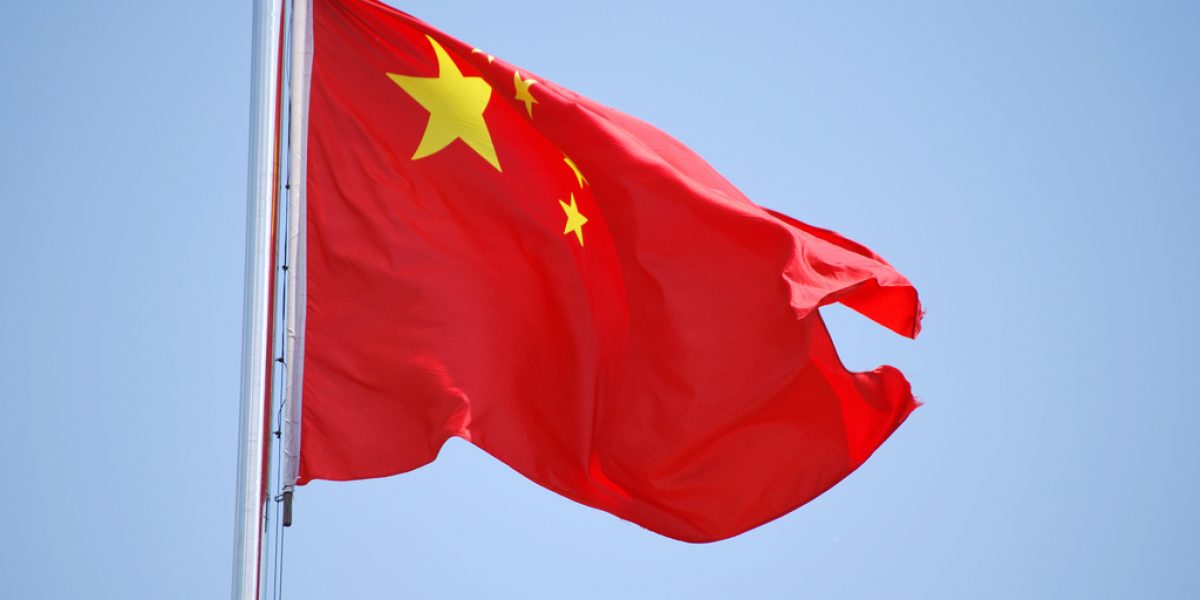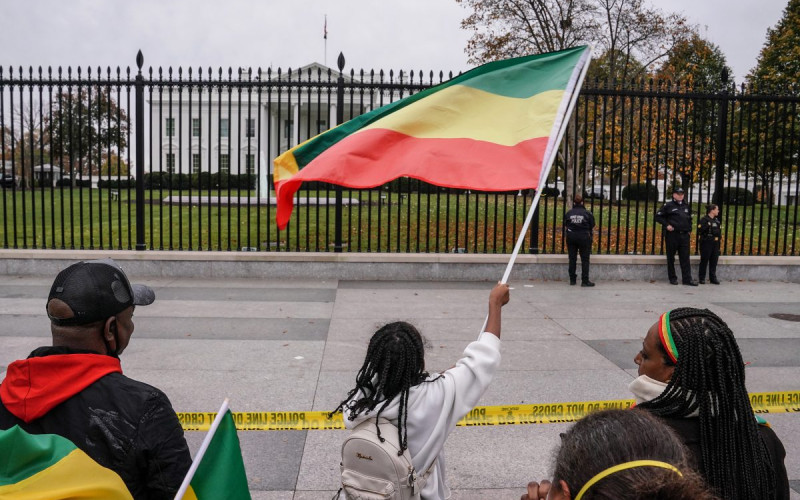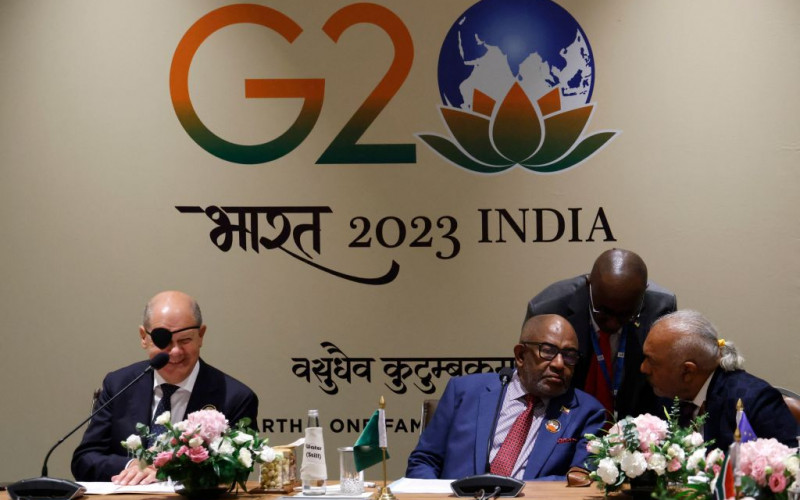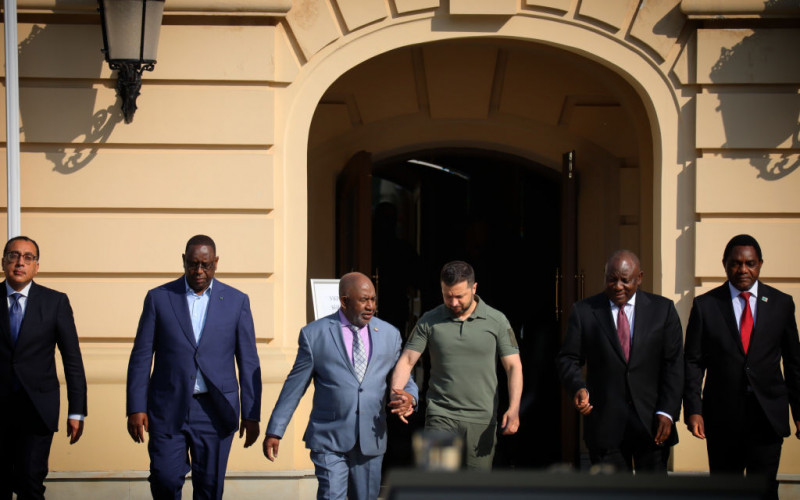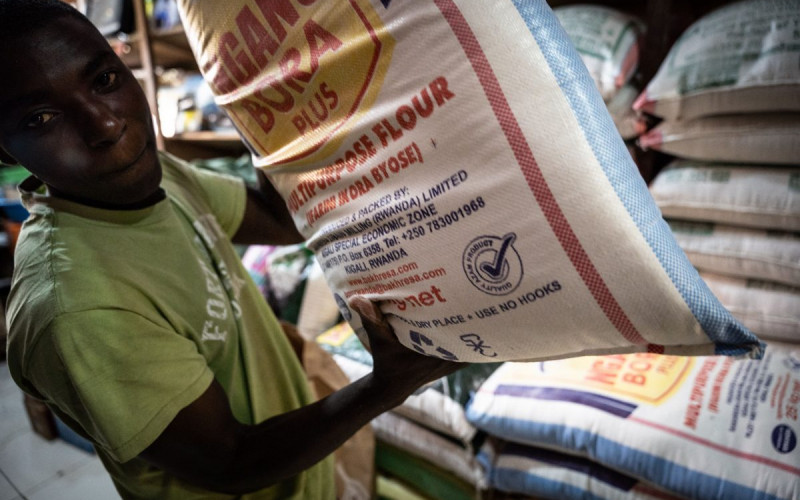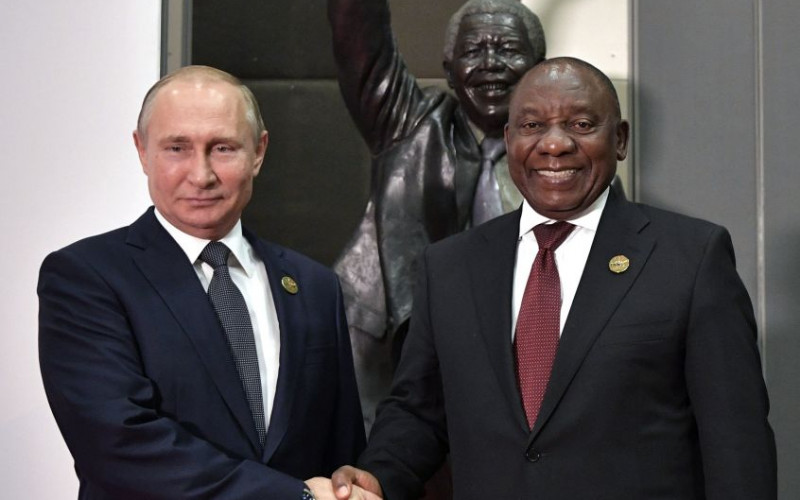The spectacle of foreigners intent on pursuing their interests in Africa – be they commercial gains, political stratagems or humanitarian impulses – and discovering that the complexities of the continent thwart their original aims is an old story that is as true today as it was in Roman times. Chinese foreign policy, fixed on an ‘omni-directional’ approach towards Africa that marries solidarity politics with resource diplomacy, is but the latest external power to encounter challenges to its preconceptions. But what is most compelling about the Chinese case is that its involvement in Africa seems to have produced a significant transformation in the certitudes that have guided its foreign policy for five decades. Africa is, in short, changing how China conceives of its role in the international system and the manner in which it conducts its foreign policy in some very fundamental ways.
What passes for the conventional wisdom in Western capitols these days portrays the emergence of China as a major economic and diplomatic force in Africa that is having a detrimental impact on the prospects for good governance there. China’s ‘no conditions’ foreign policy has in short order won it friends of all political stripes across a region long weary of being preached to by earnest Westerners and, in so doing, threatened to dislodge their carefully crafted agenda aimed at promoting governance and transparency. With easy credit seemingly available to all takers, there is a rush by African heads of state to attract the Chinese package of soft loans, investment capital and technical expertise to their countries and a concomitant reluctance to take up traditional Western-backed development finance with its ‘conditionalities’. The result, so it is said, is that responsible African governments, alongside their more notorious confreres in pariah states, are being tempted away from introducing policies that embed accountability in everyday practice in favour of the ‘no strings attached’ loans from Beijing.
Though it is clearly the case that China has influenced debates both with African governments and international financial institutions as to the efficacy of conditionalities in fulfilling development aims, much less attention is being spent on the effects that burgeoning ties with African pariah and petro-states are having on China. Indeed, recent events in Sudan suggest that it is not Africa that is changing under the weight of entreaties by the world’s new super power but rather that it is Chinese foreign policy that is being reshaped by Africa. African petro-states, dominated by closely knit elites whose position is inevitably contested within their impoverished societies, have been prime recipients of Chinese attention and economic largesse. However, far from producing the expected greater sense of security for Chinese interests, these self-same ties with pariah regimes and petro-states have come to cause Beijing more trouble than any of its more conventional relations in Africa.
For instance, the Sudanese government, of course, has for the last twelve months found innumerable of ways to avoiding the introduction of an international peacekeeping force that might truly halt the violence in Darfur, putting Beijing in the position of its most recognised (and increasingly most reluctant) defender. Robert Mugabe’s Zimbabwe, pining for a Chinese ‘bailout’ in the face of the country’s self-induced economic meltdown, has instituted a ‘Look East’ policy that actively (and beyond a few token Chinese gestures, so far largely unsuccessfully) courts Chinese economic and diplomatic assistance in the name of his regime’s survival against a putative Western campaign. And in Luanda, the inimitable MPLA government has demonstrated its willingness to apply its policy of diversifying its economic partners with equanimity, giving sudden notice to Sinopec that its services were no longer needed in the development of the Lobito oil refinery.
Just as its drive for energy security has caused China to engage in an unprecedented resource acquisition spree on the continent, its preferred foreign policy position – seeking out like-minded states who share its views on sovereignty – has brought its diplomats to African capitols with elaborate plans for forging close ties. Ironically, deepening Chinese engagement has caused China to drift away from its once rock-solid principle of domestic non-intervention to support for internationally-sanctioned intervention in selected conflicts like Sudan or in post-conflict areas like Liberia. In Sudan, the public acceptance of an internationally supported peacekeeping force, initially under the auspices of the African Union in 2005 and more recently in the form of UN Security Council Resolution 1828. One has the sense that Beijing is feeling the hot breadth of African worst governing practices and is in the midst of absorbing a swiftly applied series of lessons meted out by petro-elites and pariah regimes.
Chinese Identity and the African Question
Contemporary China’s self-conception of its own identity is the product of several strands including an imperial legacy, its revolutionary past and its developmental aspirations.1 The ascendancy of the Chinese Communist Party (CCP) to power in October 1949 after a long and bloody civil war was a remarkable feat which gave its leaders a solid political, military and ideological base upon which to build the new state. Despite the impulse to sweep away much of the past, manifested in Chinese domestic policy from 1954 onwards, the CCP leadership nonetheless sought to retain some features of earlier epoch in the construction of their vision of ‘New China’. For instance, the Qing dynasty’s designated territorial boundaries were retained by Beijing while Han nationalism in various forms featured in the socialisation of disparate elements under its control in the CCP’s efforts to unify the post-conflict society.2 Concurrently, Maoist dialectics, building on Marxist-Leninist thought (and still influential in shaping strategic thinking within the CCP elite), provided a complete world view that helped situate individual Chinese and their new state in relation to the international system. According to Mao, the international system was divided into progressive and reactionary forces and it was an historical imperative that the Peoples Republic of China side with the former. Finally the manifest challenges of development facing the CCP in power also exercised an important influence over the state’s forging of its identity, occupying most of its resources and attention as well as reinforcing the ideological standing of the state as being closest to other developing countries. All of these dimensions were reflected in China’s self-proclaimed foreign policy role as a leader in fomenting socialist development and revolution, a position which led to a break with Moscow, and ultimately give rise to the ‘Three Worlds Theory’ in the late 1970s which placed China as a leading developing country in contrast to the hegemonic pretensions of Moscow and Washington and their putative allies.
Throughout the tumultuous period since the founding of the Peoples Republic of China, the Chinese leadership has sought to maintain the belief that, while domestic economic policies have altered dramatically from the original socialist commitment and events at home may have even spiralled out of control at times, China’s foreign policy has been steadfast and guided by principle. As Samuel Kim has pointed out:
(I)n striking contrast with domestic policy, there persists the compulsive self-characterisation of foreign policy as one of principled constancy and continuity.3
Informing this perspective is a world-view that is decidedly state centric.4 According to Wang Jisi, the Chinese outlook holds that states are the only credible actors in the international system. The corollary of this view is that for China, as a state that has been notably weak in key areas such as the economy and military means, balancing conduct becomes a necessity of foreign policy.5 Thus Beijing’s shift from an alliance with the Soviet Union to revolutionary autarky and finally co-operation with the United States all within the span of a decade and a half, far from representing a significant series of changes (as one might imagine) in Chinese foreign policy, are in fact sober responses to uncertainty and change in the international system itself.6
In spite of its protestations, China’s longstanding identity claims that it belongs to the Third World, formulated for the new initiatives in Africa as the pairing of the world’s ‘largest developing country with the continent with the largest number of developing countries’, sits uneasily with its contemporary international recognition as an economic superpower.7 While African leaders may nominally accept this formulation, the rationale that they give for co-operating with China more often reflects their acknowledgement of China’s status as an emerging global power with superior capital, technology and political resources.8 Moreover, with the economic content of these new relations echoing the classic commodity-manufacturer dynamic of old, the rhetoric of ‘South-South’ solidarity and co-operation seemingly takes on dimensions that seem to hardly differ from generations of North-South ties. For this reason, these aspects of China’s contemporary involvement Africa pose significant challenges to the country self-perceptions and, with that, its foreign policy. It is in this context that China’s promotion of history assumes a critical importance. These not only act as a description of the foundation for past relations but also as an assurance that to African leaders that, despite Chinese emerging superpower status, it will retain the outlook and interests of fellow developing countries. Unfortunately the record of Chinese engagement in Africa is more chequered than public proclamations in Beijing would have one believe.
More challenging for China’s contemporary relationship with Africa is the changing perception of China’s identity as a developing country. While the admonition that China is a developing country was reinforced by plenty of empirical evidence in the past, this position has been harder to sustain two and a half decades later as China’s remarkable economic growth has put it on the cusp of global economic and political leadership. Indeed, the notion of China’s ‘peaceful rise’, coined by Chinese scholars in 2003 to assuage growing concerns in the West (and substituted in rapid succession by the slogans ‘peaceful development’ and ‘harmonious world’), captures the dynamic of a changing China without suggesting the tensions inherent in its foreign policy. And yet the challenges to Chinese identity and its implications for a successful foreign policy are as fundamental for Africans as they are in addressing Western concerns as to the implications of its rise on the global stage. If China is, as it appears to be, on course to full membership at the ‘high table of powerful states’ then it stands to reason its interests will change and this will be reflected in foreign policy choices. There is already some evidence of this taking place, for instance the fact that Beijing has recently signed the Paris declaration on overseas development assistance suggest that there may be significant changes coming in its wake while Chinese actions aimed at pressuring Khartoum over the Darfur issue demonstrate a willingness to adapt itself to the Western agenda. The famous Zheng He expedition may also be partially aimed at addressing this matter, in that 15th century Chinese technology and commercial prowess was far greater than that found in Africa at the time, but the thinness of the historical record and memory of this event makes it only of limited symbolic value. History in any case is being overshadowed by contemporary experiences and events and will have less and less saliency in shaping African reactions to China.
Befitting an international event of a seismic nature, the rise of China as one of Africa’s leading external partners is certainly changing the character of international politics. But it is not as much Africa that is being changed, but rather China which is belatedly discovering the dilatory effects that these new ties are having on its own foreign policy. With its energy security increasingly dependent on the mercurial politics of regime survival in Africa, and on the broader international stage, its reputation hostage to the fortunes of dictators, China is faced with hard foreign policy choices on a continent that it once regarded as a benign setting for its new-found power.
Endnotes
- See WJF Jenner, The Tyranny of History: the roots of China’s crisis (London: Penguin 1992).
- WJF Jenner, ibid.
- Samuel Kim, ‘New Directions and Old Puzzles in Chinese Foreign Policy’, in Samuel Kim, ed., China and the World: new directions in Chinese foreign relations (Boulder, CO: Westview 1989), p. 4.
- Wang Jisi, ‘International Relations Theory and the Study of Chinese Foreign Policy: a Chinese perspective’, in Thomas Robinson and David Shambaugh, eds., Chinese Foreign Policy: theory and practice (Oxford: Clarendon Press 1994), p. 492.
- Wang Jisi, ibid, p. 489. Wang points out that the preferred term within the CCP is ‘balance of forces’, reflecting Marxist dogma, but that this conforms closely with the realist notion of ‘balance of power’.
- Wang Jisi, ibid., p. 488.
- He Wenping, ‘China’s Perspective on Contemporary China-Africa Relations’, in Chris Alden, Dan Large and Ricardo Soares de Oliveira, eds., China Returns to Africa: a superpower and a continent embrace (London: CR Hurst – forthcoming), p. 2.
- There are numerous examples of this, from the ‘Look East’ rhetoric employed by Ghana, Zimbabwe and Namibia to more prosaic statements by African leaders.

